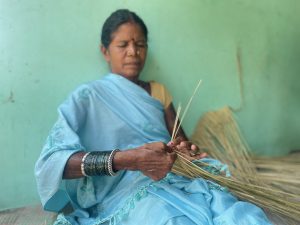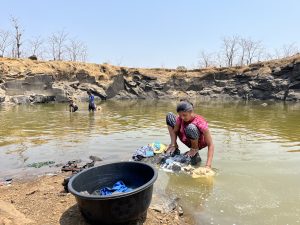Those Killed Include Innocents, Say Adivasis Of Recent Anti-Naxal Operation In Bastar
A fortnight before polling in Bastar, security forces killed 13 persons in what it called the biggest anti-Naxal operation since 2017. But at least two of those were Adivasi villagers, one of them a young deaf girl
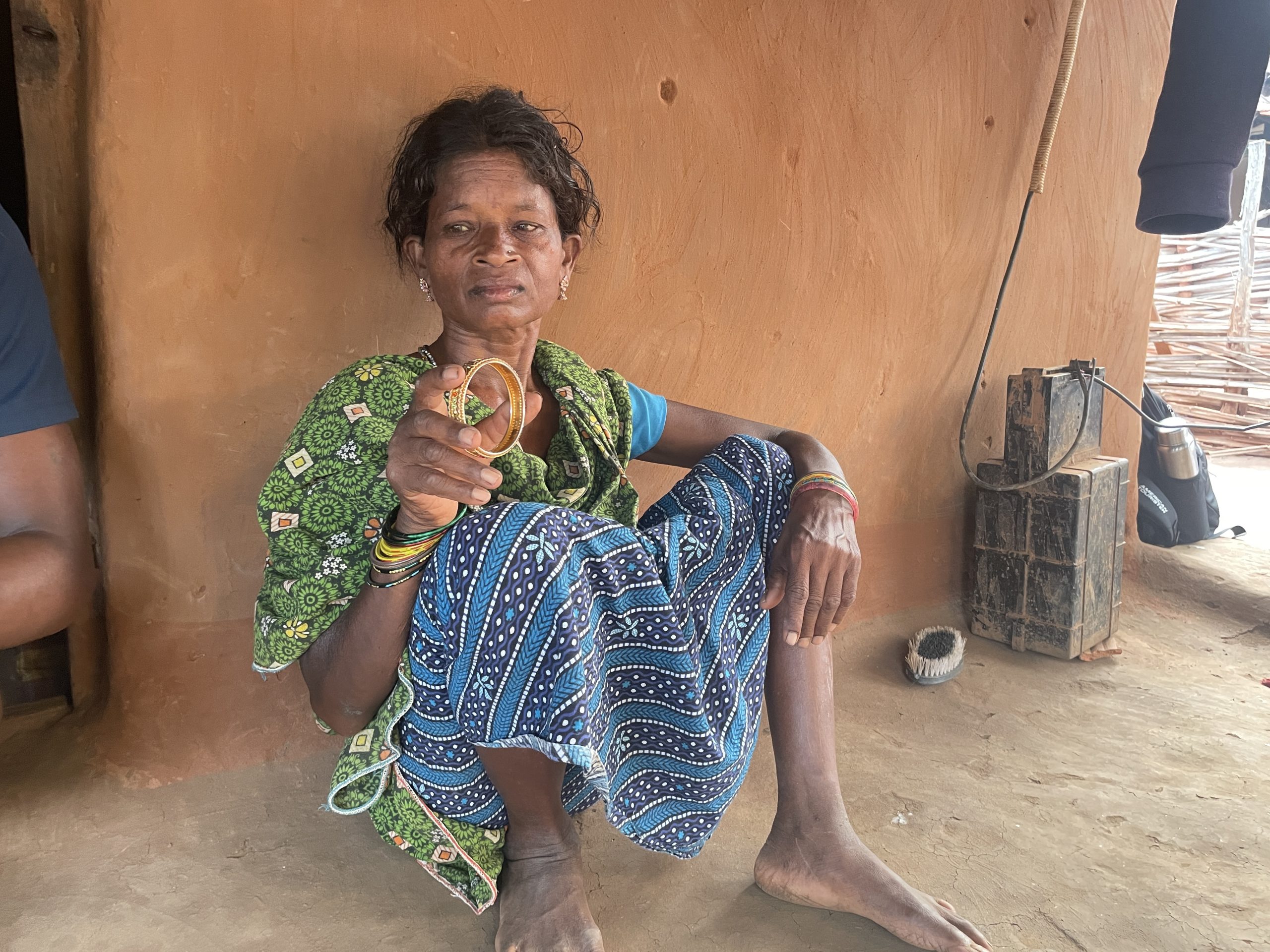
TW: This story contains mentions of sexual violence, police brutality and other forms of violence
Kamli Kunjam had not been feeling well for a few days, her stomach ached and she was unable to eat properly. At around 9 am on April 2, 2024, she was lying on the porch of her mud house in Nendra village, trying to rest, when a platoon of police personnel barged into her home. Scared, she ran inside.
“Soon, some female police officers came inside and started dragging her out,” said Kamli’s mother Somli. “We told them to please let her be because she was sick and had not been eating well. They measured her wrist and touched her stomach and declared that she was not sick and continued to drag her out. When we protested, they told us that they will give her food and will take her to a hospital.”
Kamli’s grandmother Joggi too tried to hold onto her. But the security forces pushed them aside and dragged her out. “They told us they would not do anything to her but they were thrashing her even as they were taking her away,” said Joggi.
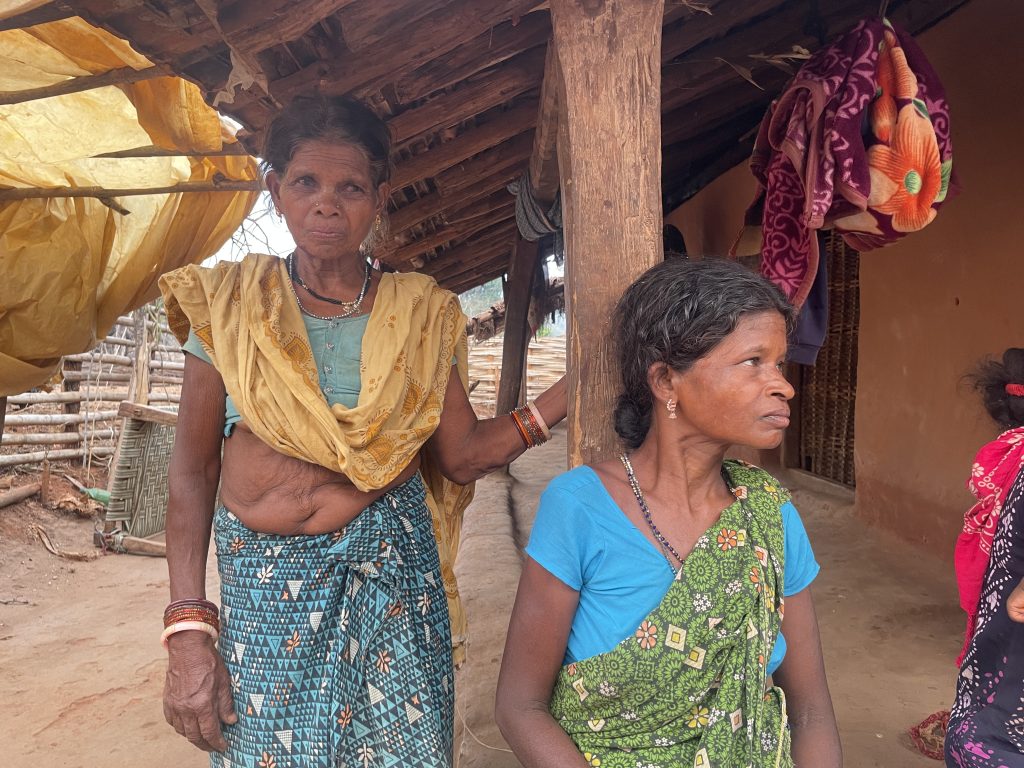
Somli and Joggi said that the security personnel took Kamli towards the forest instead of the road. “We couldn’t do anything,” said Somli. “She was taken forcibly from our home and her clothes were torn. Even the clothes on her lower body were torn. Something bad was done to her.”
Next day, at around 6 am, Kamli’s sister-in-law Aythe Kunjam and two other women from the village started scouring the forests to find some trace of where Kamli had been taken. After five hours of searching, Aythe said she found Kamli’s bangle and signs that someone had been dragged through the mud.
Somli broke into a wail holding Kamli’s bangle: “You were sick, my daughter, and they killed you like an animal. Where are you, my daughter? I am looking for you but I can’t find you.”
As per the police, Kamli Kunjam was one of the 13 Maoists who were killed in an 8-hour-long encounter held on April 2. But her family denies this. “My daughter couldn’t hear, she was deaf. She could not speak properly as well, how can she help Maoists?” asked Somli.
The police are calling the encounter the biggest anti-Naxal operation since 2017 when eight Maoists were killed.
The long-term conflict between Maoists and government security forces has considerably impacted Bastar’s Adivasi people, especially women. Security forces have been accused multiple times of brutal sexual and physical violence against Adivasi women: In 2017, the National Human Rights Commission, prima facie, found allegations of rape, sexual and physical assault by state police personnel on 16 women to be true. In 2018, a 23-year-old Adivasi woman said she was raped by security forces at her home in Bijapur district. This year, a 6-month-old baby was killed by gunshot. While police say the Maoists killed her, locals say it happened when police opened fire at those protesting the felling of trees.
Since the BJP government came into power in Chhattisgarh in December 2023, action by the security forces have intensified – in 2024, as per the police, 79 Maoists have been killed, more than triple the number in 2023 (22).
And this violence has led to more civilian deaths than police or Maoist deaths. Over 2,000 civilians have died in Chhattisgarh in 20 years to 2022, 35% more than the number of security forces and 40% more than the number of Maoists, found an analysis by Article 14.
Moreover these numbers of civilian deaths do not include villagers like Kamli branded as ‘Maoists’. Around a week after the incident on April 2, Behanbox visited Nendra and Korcholi villages in Chhattisgarh’s Bijapur district and found that among those killed in police action at least two, including Kamli, were villagers with no links to the Maoists, as per their families.
We have contacted P Sundarraj, the Inspector General of Police in Bastar Range, for his comments on the allegations made by the family members of victims. We will update this copy as soon as we receive his response.
In Bastar, where people will vote tomorrow, insurgency has become a poll issue. Home minister Amit Shah, on Sunday, said that if Narendra Modi returns as the prime minister for a third term, he would end Naxalism in three years.
This is the first in our series of two reports looking at the impact of the diversion of forests and mining on Adivasi women.
How It All Began
The Maoist insurgency has its roots in the 1967 peasant rebellion against exploitative landlords in West Bengal’s Naxalbari district. While this movement was quelled, armed movements continued to simmer locally for a couple of decades. The Maoists started organising Adivasi people in Bastar in the 1980s to fight for their rights to land, water, forest produce, better wages, health care, and education.
In the 1990s, following the privatisation and liberalisation of the Indian economy, the government started granting mining leases to private and multinational corporations, especially in Chhattisgarh and Jharkhand. This intensified the insurgency, increasing resistance to state and corporate efforts to divert forest land for industrial development.
The insurgency, at its peak in the mid-2000s, was dominant in 200 districts across 12 states. In 2006, then Prime Minister Manmohan Singh called it “the single biggest internal-security challenge”, while amping up anti-insurgency efforts.
In 2005, the Chhattisgarh government armed and paid young tribal and non-tribal people who were protesting against the Maoists and constituted the Salwa Judum, meaning ‘purification hunt’ in the local Gondi dialect. These barely-trained vigilantes, conducted violent raids in villages, displacing villagers and in some cases, beating, raping, and killing villagers. In 2011, the Supreme Court passed an order declaring Salwa Judum illegal and unconstitutional. But cases of violence by the security forces continue to be reported.
Women Bear The Brunt
“The police have claimed great success for the encounter of April 2, saying 13 Maoists were killed,” said Soni Sori, an activist working on uncovering human rights violations in Bastar. “But what the police are saying is not the complete truth. There is more to it that is being kept under wraps. Around half of the people were villagers who were killed and included in all this.”
“Since January, the pace of these fake encounters has increased sharply,” said Bela Bhatia, a human rights activist and lawyer who works in Bastar. “We had fake encounters earlier too but the sudden spike is quite noticeable. Many civilians – including minors – have been killed; the youngest victim was only 6-months-old.”
In February this year, three women, along with a group of villagers, marched to a police station in Kanker, to claim that their husbands who were killed in a recent encounter were not Maoists but innocent villagers.
Soni said this violence is a way to create fear in the minds of the Adivasi people. She was working as a teacher when she was accused of sedition and other trumped up charges in 2011, only to be acquitted 11 years later.
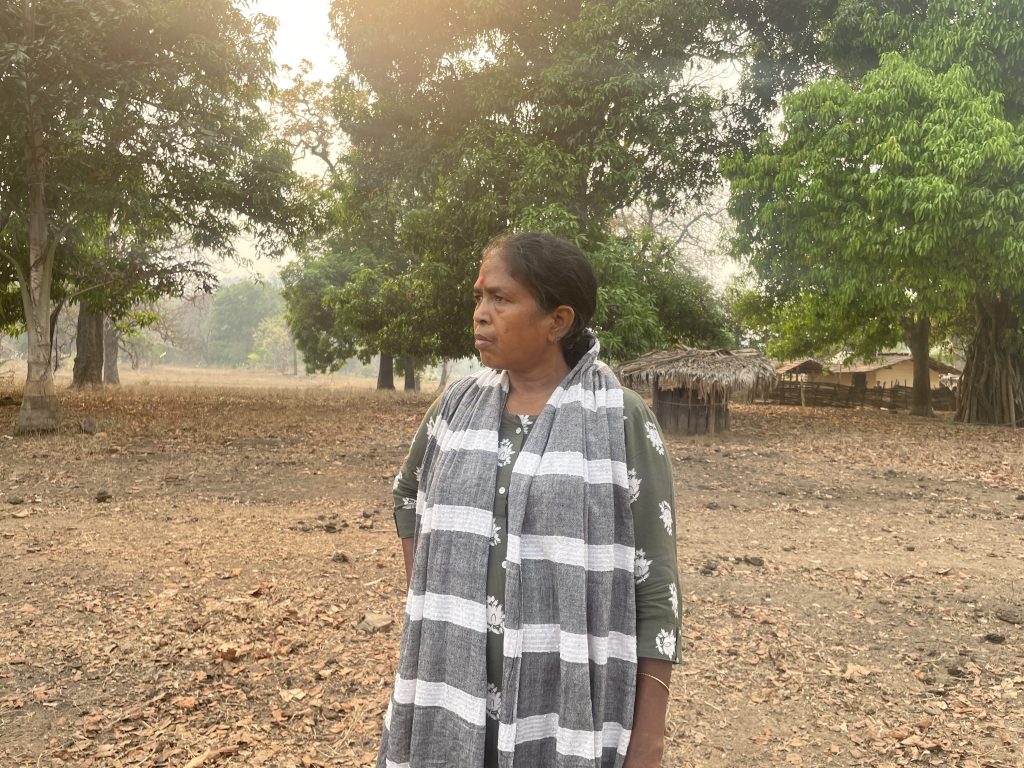
“If they do this, then Adivasi people will leave their jal, jungle, zameen and move elsewhere. What is happening to Adivasi women and men [where they are being shot, arrested and raped] is because the government wants to open up the forests and the mountains to mining and give the extensive resources to big industrialists,” she said.
In Odisha, women protesting against the Sijimali Bauxite Mining Project have faced police intimidation, rape and death threats, we reported in November 2023. Kanchan Majhi, a 19-year-old leader from Kantamal had told us that on October 9, 24 women from Kantamal and Banteji villages were intercepted by the police and threatened with rape.
“It takes the forces 5 minutes to kill a man. But it takes them 1-1.5 hours to kill a woman. Because, for one hour, we are abused, assaulted and raped and after that, the police shoot us and kill us,” said Soni, who was tortured and sexually assaulted in jail. “I have been a survivor of this kind of torture and I have seen how brutal it is,” said Soni. “Many times women are taken, they are assaulted, their private parts are destroyed, their bodies are crushed and then they are killed. Why don’t they just shoot us? We are ready to be shot, killed or put in jail. Why rape us?”
Children Detained, Beaten
In Korcholi, 12-year-old Nimo* Pottam was milling rice at home when the police came and took her away. Her mother Budri Pottam tried to hold onto her but they pushed her away and detained her. When Behanbox visited Nimo’s house on April 8, she was still in lock-up and her mother had gone to the police station.
“We haven’t seen her since April 2,” said her father Sannu Pottam. “First they said that she is in the hospital, but we haven’t been able to see her.”
That night, Nimo returned home with Budri and spoke to us the next day. “They made me get down on my fours and hit me on my back,” said Nimo. “They also did not provide us with any food. They gave us rice and dal and told us to cook it ourselves.”
Between April 2 and 8, Budri went every other day to the police station in Bijapur, 26 km from their village. But she was not allowed to meet her daughter. After five days, Nimo and another woman from the village were released.
“They let us go on the evening of April 7,” said Nimo. “But we didn’t know how to get back home in the dark. So we spent the night under a tree near the police station. We did not eat anything and we took turns sleeping [to keep watch].”
Along with Nimo were five boys from Korcholi who were picked up while they were in Telangana to pick chillies. “We left the village on March 28 and started working on April 1,” said 16-year-old Sukku* Pottam. “On April 5, the Chhattisgarh police came there and brought us to the Bijapur police station. They beat us up and interrogated us. They asked us who in our villages is a Maoist and who supports them.”
“We said, ‘You know sir, they don’t tell us students anything. So why are you asking us?’” recalled Sukku. He said Nimo was at the police station when they were taken there on April 6. “She ate with us,” he said. After four days of interrogation, Sukku and three other boys were let go.
Left Behind To Cope
The villagers of Nendra and Korcholi told us that since the Salwa Judum operations, April 2 was the first time that they saw such a large number of security forces in their village. They also recalled hearing firing from a hill in the area around 4 am and this had gone on till 6 am.
After the firing stopped briefly, Chaithu Pottam told his wife, Somi, that he was going to the forest to ensure that stray cattle don’t eat the fallen Mahua flowers and asked her to join him once she had fed their children. That was the last time Somi saw Chaithu.
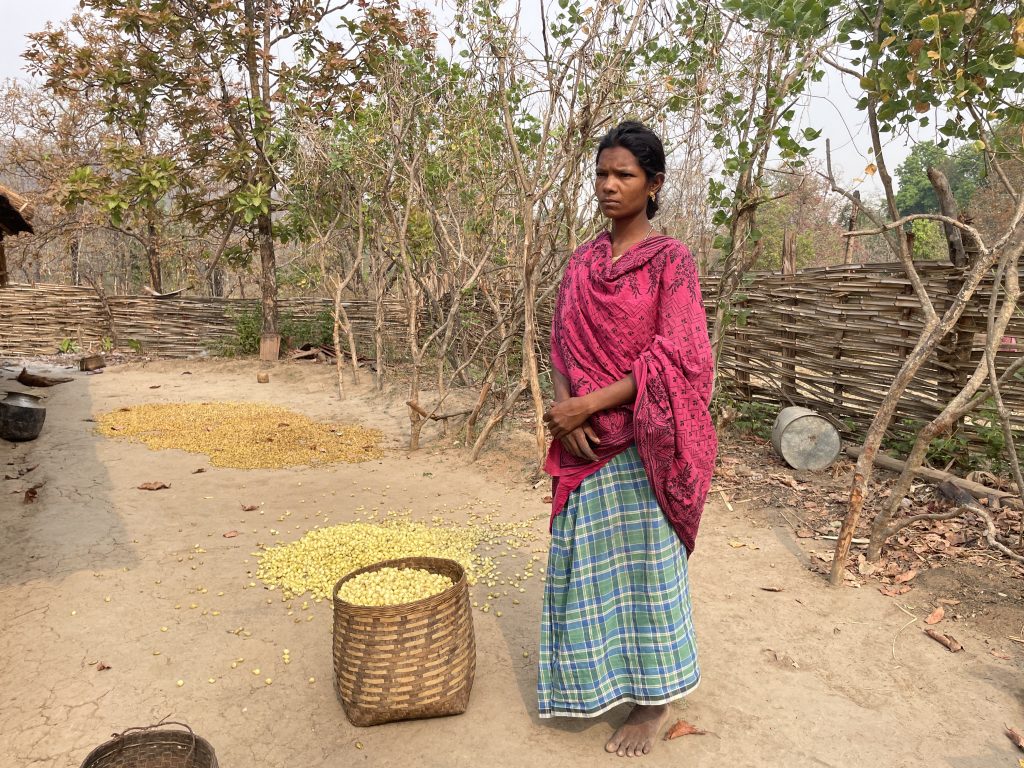
Soon after Chaithu left, the firing had restarted. “He must have rushed to take shelter,” said Somi, while breastfeeding the youngest of her six children. For almost two days, Somi looked everywhere for Chaithu but did not find him. On April 4, she was asked to come to the hospital in Bijapur and identify his body. “His body was completely destroyed,” said Somi. “I identified him based on his beard and a mark on his feet.”
As per the police, Chaithu was a Maoist and was killed in the encounter but Somi denied this. “If he had gone and joined Naxals, who would have built this home and created this badi,” Somi said pointing at the small farm enclosed to her home. “The police are lying. He was my husband and the father of our six children.”
Last year, Chaithu’s brother Mangu was arrested by the police. When we visited Somi, their third brother Raju had gone for Mangu’s court hearing. Somi is worried about her children and their future. “Chaithu had bought a cattle animal for ploughing the farm. Now I don’t know who will do that,” said Somi. “How will I raise my children? I have nothing – no agricultural support or money.”
“In these situations, women face a lot of problems,” said Soni. “She has to go far away to get the dead body back. And if someone is jailed, then their mother, sister or wife has to go routinely to Bijapur or Dantewada. She faces a lot of problems to go and come back. And then there are added expenses when the case is in the court, including lawyers’ fees.”
Kamli Kunjam (another resident by that name in Nendra village) had not eaten for almost a week when we met her. “I don’t want to eat until I see my husband,” said Kamli, gaunt and visibly ill. Kamli’s husband, Sudru, was arrested on April 2 and had not been released a week later.
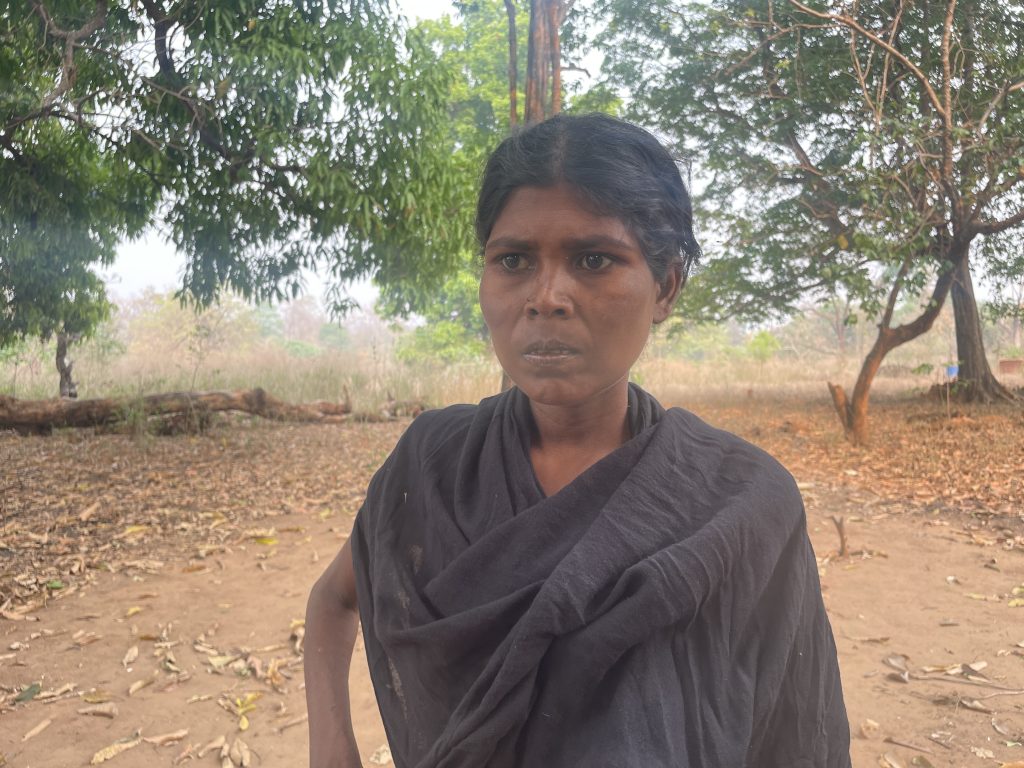
“Ascertaining the truth about these instances is a big challenge,” said Bela Bhatia, who has been stopped multiple times from visiting villages and meeting family members or the injured in hospitals. “Right now, with much difficulty one is just able to investigate and help family members lodge police complaints, so that there is at least a record.”
She also calls and visits police stations to help family members get information of those who were picked up by the police but whose whereabouts are not known. “This puts some pressure on the police to respect the law, when they know that someone is following up,” she said.
Bhatia made similar intervention for those who were picked up from Korcholi and Nendra villages on the day of the encounter and for Sukku* and others who were picked up from Telangana. “On the 6th evening, the Bijapur Kotwali police turned anxious family members away but were obliged to respond when I went later that evening,” she said.
“I chose to go to Korcholi also the same night with the village youth knowing that I would be stopped in the morning,” she added.
Bhatia said the experience of litigating on such instances at the High Court in Bilaspur has been somewhat discouraging so far. In July 2023, several such petitions on similar cases that had been filed by activists and organisations including Himanshu Kumar, Jagdalpur Legal Aid Group and Human Rights Law Network were disposed of abruptly, she pointed out.
“Petitioning in the High Court is in any case quite tough because of the distance and costs involved. I don’t have the necessary resources to litigate in the High Court. Instead, I work in the District courts – including the NIA courts – and defend those who have been incarcerated mostly in false cases,” said Bhatia.
Sori said the Adivasis only want to be included in the conversations about development. “Why don’t they talk to us?” she asked.
*Names of minors changed to protect their identity
(Vishnukant Tiwari helped with translation from Gondi)
Our Newsletter
Subscribe to Our Newsletter
We believe everyone deserves equal access to accurate news. Support from our readers enables us to keep our journalism open and free for everyone, all over the world.
